With the relevant parties still unable to agree on exactly what ‘below cost’ means, a ban is likely to prove unenforceable. Graham Holter reports
A ban on below-cost alcohol sales sounds simple enough and it certainly makes for good headlines. But the coalition government may be about to discover that outlawing loss-leaders is a fiendishly difficult perhaps impossible task.
As the Police Reform and Social Responsibility Bill was announced in the Queen's Speech this week, officials at the Department for Culture, Media & Sport could offer little detail on how the legislation would be framed, or the timescale.
And the first stumbling block is that there is no clear consensus on what is meant by 'cost'.
To supermarkets and industry bodies such as the Wine & Spirit Trade Association, it's the combination of duty and VAT, which add up to about £2.33 on a typical bottle of wine; £7.81 on spirits; and £1.02 on a litre of 5% abv lager (duty on lager varies depending on the abv; ale and cider duties are fixed).
Using this definition, instances of below-cost selling are rare. The Grocer commissioned promotions analysts Assosia to investigate the most attractive deals on leading lager brands in the big four last week in the run-up to the World Cup. Assosia found only one Tesco promotion for Stella Artois, at 95p per litre was below cost after subtracting duty and VAT.
Tesco also offered the cheapest and lowest margin deal on three of the four other deals available leading to accusations of hypocrisy following its welcome last week of proposed legislation.
But all the supermarkets were selling lager on a wafer-thin margin, the research showed (see table). It's not below-cost as some would define it, but it's doubtful any can source on terms that make such prices profitable. And that puts the industry on a collision course with the Competition Commission as to how legislation would be drawn up.
The Competition Commission defines below-cost selling aswhere a retailer sells an item for less than the total input cost in other words, when it simply loses money on an item. And it's already been doing its sums. It calculated that during the 2006 World Cup, the top five grocery multiples sold £38.6m-worth of alcohol at loss-making prices, according to its definition.
Tesco emerged as the biggest exponent of loss-leading in the 2006 World Cup, with 10 SKUs selling for a combined loss of £15.2m, according to the OFT. Sainsbury's had 29 loss-leading SKUs over the period, retailing at a combined £7.2m
Sometimes the losses were used purely as a tactic to drive footfall, but demonstrating how complex these promotions can be, there were other explanations too: to maintain competitiveness against a rival, to clear surplus stock, or because a supplier wanted to back a new launch with a keen price. A ban on below-cost selling using this definition would therefore be a restriction on competition.
A below-cost ban would also be difficult to enforce because of the complex nature of some of the deals. Overriding discounts, which are invoiced separately by retailers when volume targets have been hit, are an obvious example of an irregular pricing mechanism.
The relative buying power of each supermarket also needs to be taken into account. And it would be difficult to police calculations of profit and loss given the sensitivity and secrecy surrounding such deals.
Since the recession, there have been rumours that brewers have been forced to support deep discounts. All the senior executives we have spoken to insist this is not the case. As the CEO of one leading brewer told The Grocer: "I make more money selling beer to the supermarkets than I do to the pubs."
And even the most cynical elements in the trade appear to believe this. "I would be amazed if some of the big headline prices we see during key events like Christmas, the World Cup and Easter are not below cost," says Steve Parfett, managing director of Parfetts Cash & Carry. "I'm assured by suppliers that [they are] below cost, and while I take everything suppliers say with a pinch of salt, I do think this must be part of a market share grab."
But there's also the question of promotional contributions by suppliers to calculate an area kept opaque by both parties.
In a note to its members, the WSTA says: "Large retailers' supply contracts contain many clauses that make it hard for an outsider to estimate actual purchase prices. The unit price is only one component of the purchase price, which typically incorporates many discounts and rebates as well. These restrictions present significant administrative challenges."
Indeed, it would hardly be difficult to concoct a system whereby a brewer offers rock-bottom prices to a retailer on one particular brand, but hikes up costs on other portfolio products to compensate. "They would run rings around any legislation," says Parfett.
Sainsbury's sounds a cautious note on the prospect of legislation. "There have been many attempts over the last couple of years to define the term 'below cost'," a spokesman says. "We do not sell alcohol below duty plus VAT, which is the most commonly used way to define the term."
Morrisons also made a pledge at a recent board meeting, based on the same definition.
But in welcoming the possibility of new legislation, Tesco appeared to suggest that a range of options should be explored, in order to prevent cheap booze deals.
"Consumers want us to help address the issue of low-cost alcohol, which they feel fuels the anti-social behaviour and disorder that affects so many communities," says Lucy Neville-Rolfe, Tesco's executive director for corporate and legal affairs, last week.
The only way that can happen is through government legislation, she adds. "Any attempt by retailers to form agreements on prices, even with the well-intentioned aim of tackling such a serious social issue, could fall foul of competition laws and lead to retailers being fined and potentially prosecuted."
A ban on below-cost alcohol sales sounds simple enough and it certainly makes for good headlines. But the coalition government may be about to discover that outlawing loss-leaders is a fiendishly difficult perhaps impossible task.
As the Police Reform and Social Responsibility Bill was announced in the Queen's Speech this week, officials at the Department for Culture, Media & Sport could offer little detail on how the legislation would be framed, or the timescale.
And the first stumbling block is that there is no clear consensus on what is meant by 'cost'.
To supermarkets and industry bodies such as the Wine & Spirit Trade Association, it's the combination of duty and VAT, which add up to about £2.33 on a typical bottle of wine; £7.81 on spirits; and £1.02 on a litre of 5% abv lager (duty on lager varies depending on the abv; ale and cider duties are fixed).
Using this definition, instances of below-cost selling are rare. The Grocer commissioned promotions analysts Assosia to investigate the most attractive deals on leading lager brands in the big four last week in the run-up to the World Cup. Assosia found only one Tesco promotion for Stella Artois, at 95p per litre was below cost after subtracting duty and VAT.
Tesco also offered the cheapest and lowest margin deal on three of the four other deals available leading to accusations of hypocrisy following its welcome last week of proposed legislation.
But all the supermarkets were selling lager on a wafer-thin margin, the research showed (see table). It's not below-cost as some would define it, but it's doubtful any can source on terms that make such prices profitable. And that puts the industry on a collision course with the Competition Commission as to how legislation would be drawn up.
The Competition Commission defines below-cost selling aswhere a retailer sells an item for less than the total input cost in other words, when it simply loses money on an item. And it's already been doing its sums. It calculated that during the 2006 World Cup, the top five grocery multiples sold £38.6m-worth of alcohol at loss-making prices, according to its definition.
Tesco emerged as the biggest exponent of loss-leading in the 2006 World Cup, with 10 SKUs selling for a combined loss of £15.2m, according to the OFT. Sainsbury's had 29 loss-leading SKUs over the period, retailing at a combined £7.2m
Sometimes the losses were used purely as a tactic to drive footfall, but demonstrating how complex these promotions can be, there were other explanations too: to maintain competitiveness against a rival, to clear surplus stock, or because a supplier wanted to back a new launch with a keen price. A ban on below-cost selling using this definition would therefore be a restriction on competition.
A below-cost ban would also be difficult to enforce because of the complex nature of some of the deals. Overriding discounts, which are invoiced separately by retailers when volume targets have been hit, are an obvious example of an irregular pricing mechanism.
The relative buying power of each supermarket also needs to be taken into account. And it would be difficult to police calculations of profit and loss given the sensitivity and secrecy surrounding such deals.
Since the recession, there have been rumours that brewers have been forced to support deep discounts. All the senior executives we have spoken to insist this is not the case. As the CEO of one leading brewer told The Grocer: "I make more money selling beer to the supermarkets than I do to the pubs."
And even the most cynical elements in the trade appear to believe this. "I would be amazed if some of the big headline prices we see during key events like Christmas, the World Cup and Easter are not below cost," says Steve Parfett, managing director of Parfetts Cash & Carry. "I'm assured by suppliers that [they are] below cost, and while I take everything suppliers say with a pinch of salt, I do think this must be part of a market share grab."
But there's also the question of promotional contributions by suppliers to calculate an area kept opaque by both parties.
In a note to its members, the WSTA says: "Large retailers' supply contracts contain many clauses that make it hard for an outsider to estimate actual purchase prices. The unit price is only one component of the purchase price, which typically incorporates many discounts and rebates as well. These restrictions present significant administrative challenges."
Indeed, it would hardly be difficult to concoct a system whereby a brewer offers rock-bottom prices to a retailer on one particular brand, but hikes up costs on other portfolio products to compensate. "They would run rings around any legislation," says Parfett.
Sainsbury's sounds a cautious note on the prospect of legislation. "There have been many attempts over the last couple of years to define the term 'below cost'," a spokesman says. "We do not sell alcohol below duty plus VAT, which is the most commonly used way to define the term."
Morrisons also made a pledge at a recent board meeting, based on the same definition.
But in welcoming the possibility of new legislation, Tesco appeared to suggest that a range of options should be explored, in order to prevent cheap booze deals.
"Consumers want us to help address the issue of low-cost alcohol, which they feel fuels the anti-social behaviour and disorder that affects so many communities," says Lucy Neville-Rolfe, Tesco's executive director for corporate and legal affairs, last week.
The only way that can happen is through government legislation, she adds. "Any attempt by retailers to form agreements on prices, even with the well-intentioned aim of tackling such a serious social issue, could fall foul of competition laws and lead to retailers being fined and potentially prosecuted."








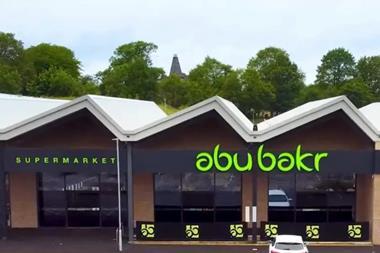


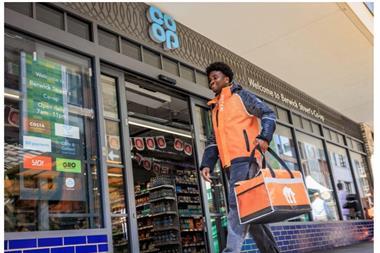
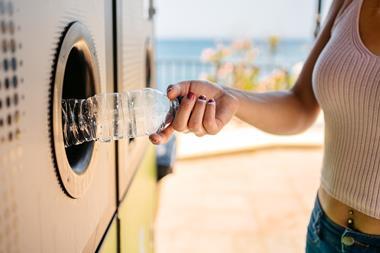

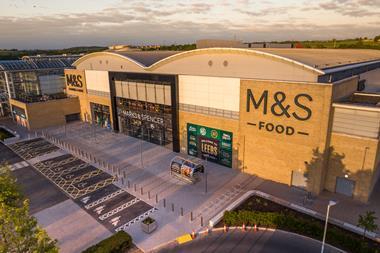
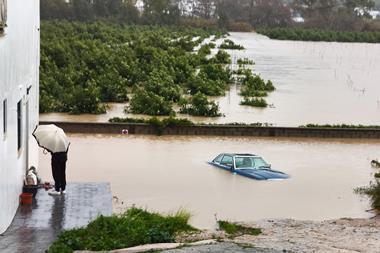
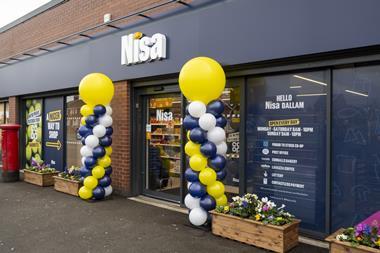
No comments yet